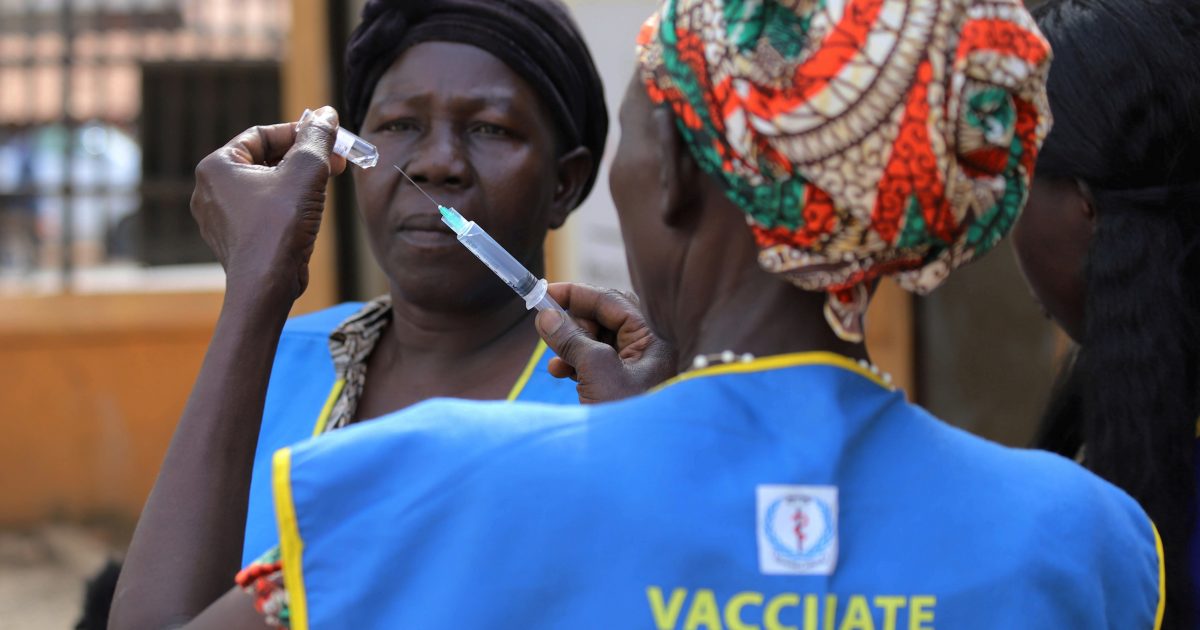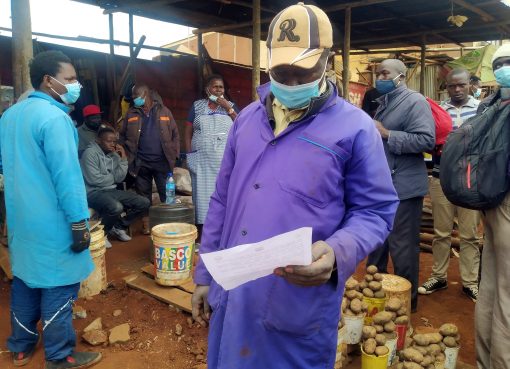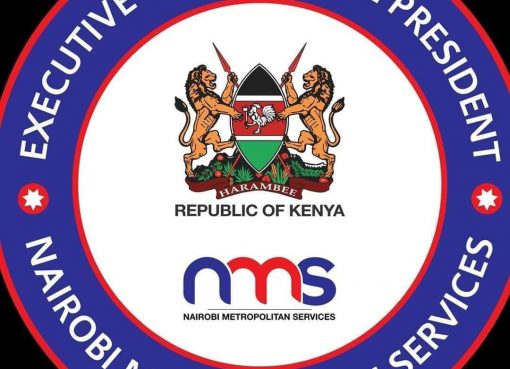The government has rolled out a nationwide Measles-Rubella vaccination campaign, targeting 22 selected counties that are at highest risk.
The exercise will run from June 25- July in 22 counties, and target 3.5 million children between 9 months and 59 months in the counties more at risk and with low immunization coverage.
The rubella component will be administered free of charge through 5,061 vaccination posts that will be set up in public places including markets, schools, churches, mosques and other social places and mobile vaccination teams in addition to all public health facilities within the 22 counties.
Explaining the rationale for the introduction of the rubella component, officials at the Ministry of Health said the incidence of rubella and outbreaks have been on the increase in recent years.
According to Ministry of Health Chief Administrative Secretary (CAS) Dr. Mercy Mwangangi, coverage of measles in the country is not up to optimum, emphasizing on the critical function of immunizations in protecting children from life threatening ailments.
Mwangangi who spoke today in Nairobi during the media breakfast for the Measles –Rubella Vaccination Campaign, urged members of the public to take advantage of this free of cost immunization to present their children for the exercise.
The CAS warned members of the public that Measles and Rubella are highly infectious and serious diseases caused by viruses, for which human beings are the only reservoir.
“Measles is the third most common cause of deaths among children from vaccine preventable diseases. Deaths are mainly due to complications- severe diarrhoea, pneumonia, ear infections (Otitis – media) with sometimes presence of pus from the ears, brain damage and blindness,” she explained.
Mwangangi noted that Kenya remains at constant threat of measles outbreaks as it has been witnessed over the last one year, in which outbreaks have been reported in Mandera, Wajir, Garissa, West Pokot and Tana River among other counties.
“The government is determined to improve mother and child conditions. The number of children who die young had reduced due to immunization and improved health services,” she commented.
The CAS further noted that the unprecedented increase in the number of unvaccinated children, accumulation of susceptible children to more than 2.1 million and the ongoing Covid-19 pandemics has compounded this problem.
Ministry of Health Ag. Director General Dr. Patrick Amoth said that the vaccination campaign will utilize vaccines which are in use in the routine immunization programme and that are procured by the Government of Kenya and will be delivered by trained personnel through the existing health infrastructure.
“This vaccine is safe. I appeal to all parents and caregivers with children aged 9 months to 59 months to take them for immunization,” said Amoth.
A risk assessment conducted in the country with the support of the World Health Organization (WHO) identified 22 counties as being at very high risk for measles outbreaks. These include: Mandera, Wajir, Garissa, Baringo, West Pokot, Turkana, Kilifi, Tana River, Trans Nzoia, Elgeyo Marakwet, Busia, Homa Bay, Migori, Kisii, Kajiado, Nairobi, Bomet, Bungoma, Kakamega, Narok and Vihiga.
Between 2013 and 2015, 1,468,268 children aged below one year were not effectively reached with measles vaccine. Further, only 85 per cent of children vaccinated against measles develop immunity from the first dose, hence the need for the introduction of Measles Second Dose at 18 months.
Kenya has been offering measles one at nine months and from July 2013 an additional second dose at 18 months.
Rubella like Measles is a highly infectious viral disease that can cause serious health complications to newborns such as birth defects, including heart problems, loss of hearing and eyesight, and brain damage.
By Alice Gworo





